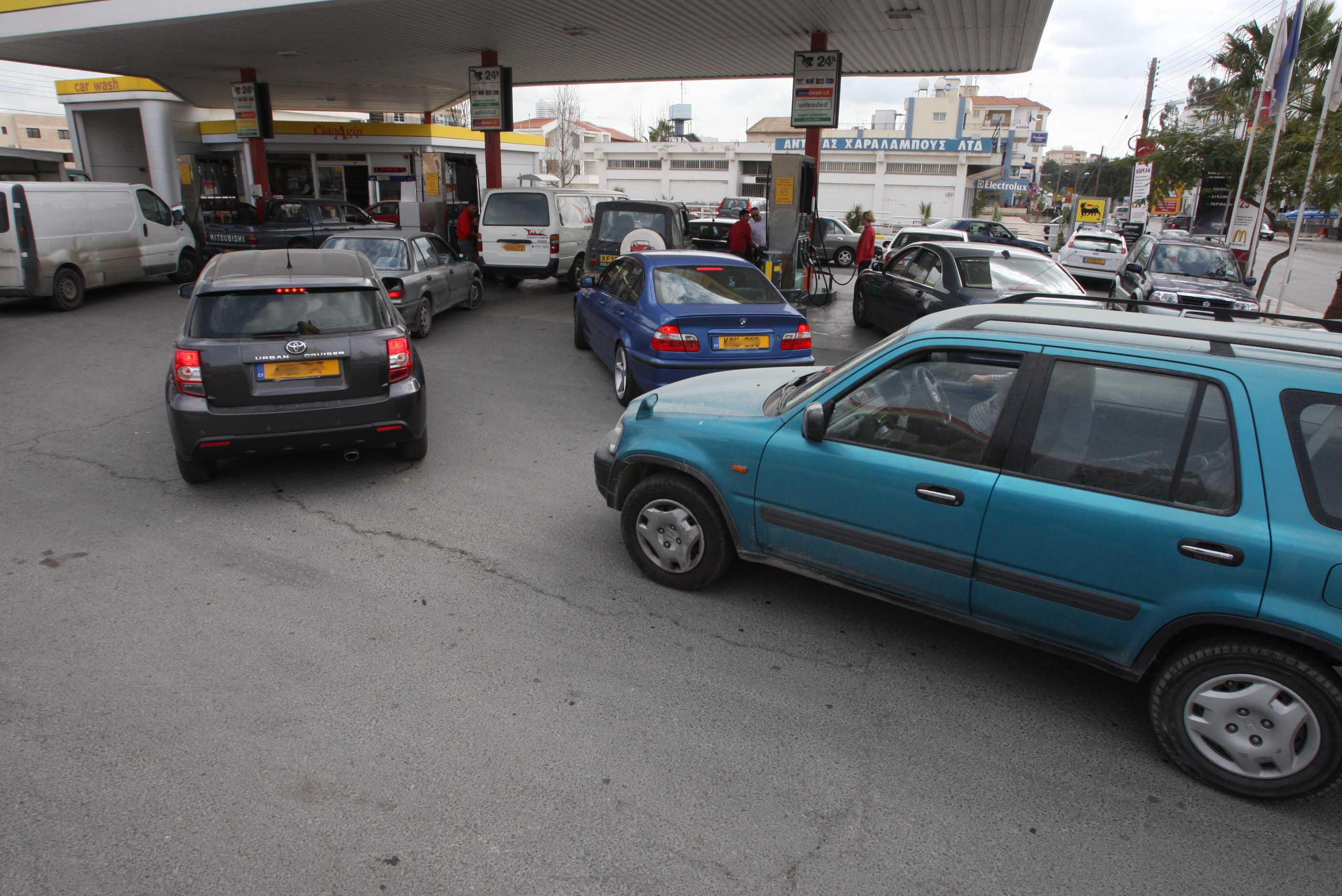Petrol stations on Saturday were packed as motorists rushed to fill up their tanks before the reduced tax measure comes to an end on Monday, April 1.
“It’s a matter of psychology. Of course there’s a lot more traffic at petrol stations. But if someone fills up their tank now, they just take advantage of the 8 cents per litre in a one-off,” head of the petrol station association Savvas Procopiou told CNA.
He said more price hikes were expected soon, due to increasing fuel prices on the international market.
Prices have already gone up 2 to 3 cents, varying across different companies, he said.
He added that as the price increases, the amount of VAT collected by the state increases, so removing the fuel tax could be offset against this amount.
‘No time to rest’
Procopiou lamented the fact that the price changes comes into effect on midnight during a public holiday ahead of April 1, forcing them to go into work in the late hours.
He underlined petrol station operators only have a few days per year to rest and it is difficult for them to go in at inconvenient hours.
As such, Procopiou said he wrote to the finance minister saying that for practical reasons, any price changes could take place at 6am the day after.
Between midnight and 6am, the average petrol station sells 100–150 litres of fuel and the loss to the state due to tax will not be so great, he told CNA.
Starting Monday, the subsidy on fuel consumption tax will come to an end, meaning an 8.3 cent hike per litre on petrol and diesel and 6.4 cents on heating oil.
Procopiou added the association has suggested to the finance ministry to implement a formula where if the retail price increases beyond €1.50 per litre, the state can intervene and remove the excise duty, even temporarily.






Click here to change your cookie preferences